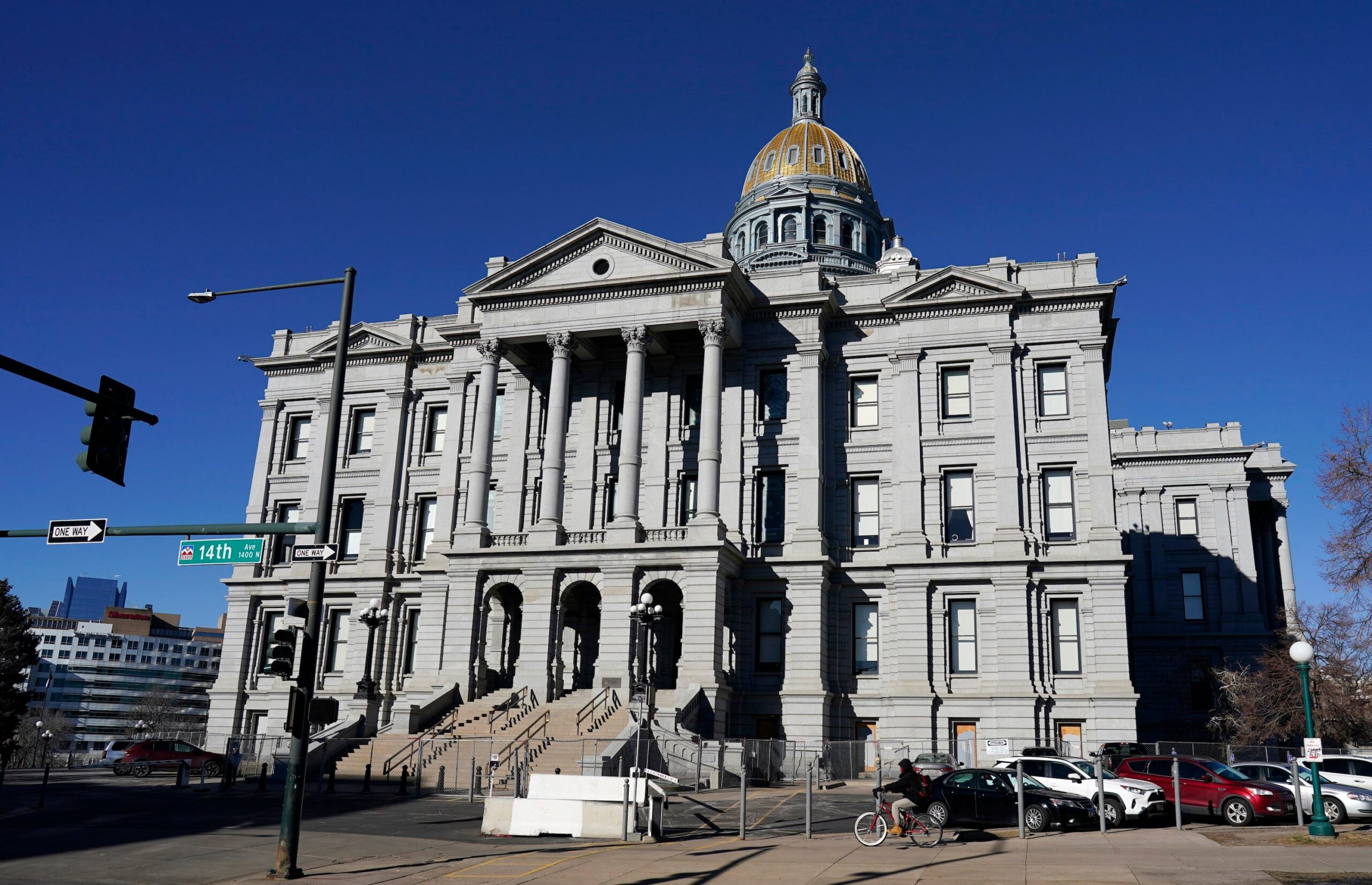
The conservative plaintiffs claim the lawmakers are using “civility” as a guise for using ideology to stifle open debate.
DENVER (CN) — Can one person’s concept of civility stifle another’s free speech rights? In a federal lawsuit filed against Democratic Colorado lawmakers on Thursday, members of two conservative groups claim they were unable to freely oppose bills regarding transgender rights because they were required to use preferred pronouns while giving public testimony.
“[Lawmaker defendants] have prescribed how critics of transgenderism must present their views during the public-testimony portion of committee hearings before the Colorado Legislature by prohibiting ‘misgendering’ or ‘deadnaming’ and otherwise requiring citizens to express fealty to transgender ideology under the guise of ‘civility’ or ‘decorum,’” the plaintiffs claim in a 30-page federal lawsuit.
“Deadnaming” refers to calling someone by their birth name after they have transitioned to another gender identity. “Misgendering” is to call someone by pronouns that do not align with their identity. In their lawsuit, plaintiffs say they disagree with both concepts, and that they are embedded in transgender ideology, not civility.
During the current session, Democratic lawmakers introduced several bills looking to expand and protect transgender rights from easing name changes to expanding hate crimes and generating data on gender-affirming health care.
As lawmakers have asked speakers to resect preferred gender pronouns and names during public testimony on these bills, plaintiffs claim their First Amendment right to free speech has been violated. In requiring speakers to follow a “pronoun ritual,” the lawsuit argues legislators put their thumb on the scale and skewed the debate in their favor.
To this end, two organizations, Gays Against Groomers, and the Rocky Mountain Women’s Network sued five progressive lawmakers in the U.S. District of Colorado, including the chairs of the House Judiciary Committee and the Senate Judiciary Committee.
The 30-page lawsuit paints views on transgenderism as polarizing, with gender fluidity on one side, and biological determinism on the other, making open debate all the more important.
On hotly debated bill was HB24-1071, Name Change to Conform with Gender Identity, which would make it easier for transgender individuals with felonies to change their names. Colloquially known as “Tiara’s Law,” the bill was inspired by Tiara Latrice Kelley, a transgender woman convicted of felonies related to being a sex worker. Even though the House ultimately rejected an amendment seeking to formally rename the measure, the bill still passed both chambers and awaits the governor’s signature.
While introducing HB23-1071 to the House Judiciary Committee earlier in the session, Senator Julie Gonzalez, a Democrat representing Denver, asked witnesses to avoid “using derogatory language or misgendering witnesses or using a witness’ deadname.” In response, Committee Chair Mike Weissman, a Democrat representing Adams and Arapahoe counties, formalized Gonzalez’s comments as rules for the discussion. In the complaint, plaintiff Rich Guggenheim said this prompted him to not testify even though he had signed up to.
According to the complaint, plaintiff Christina Goeke tried to testify, but was interrupted and told she had violated the forum rules for bringing up Tiara Latrice Kelley’s background. When asked not to discuss specific people, Goeke responded, “the bill is literally named after him,” which she was told also violated the rules.
Neither Gonzalez nor Weissman, who are named as defendants, immediately responded to Courthouse News’ request for comment.
“The effects of defendants’ censorial customs, policies, and practices are experienced by plaintiffs in Colorado where plaintiffs wish to speak freely, petition, be free from compelled speech, truthfully state their opinions opposing trans ideology and sex nullification, and freely discuss individuals for whom bills are named and whose life stories are invoked to support legislation,” the plaintiffs argue in the complaint.
Other bills remain under discussion in the Colorado Legislature. HB-24-1017, creating a Bill of Rights for Foster Youth, and SB-24-189, on Gender-Related Bias-Motivated Crimes sit before the Senate while HB24-1039, concerning Non-Legal Name Changes for students, is pending in the House.
SB-24-049, on the Content of Material in Libraries was killed in the Senate Committee on Education. HB-24-1040, to generate a Gender-Affirming Health-Care Provider Study, was killed in the House Committee on Health & Human Services.
The plaintiffs are represented by attorney Endel Kolde of the DC-based Institute for Free Speech.Follow @bright_lamp



